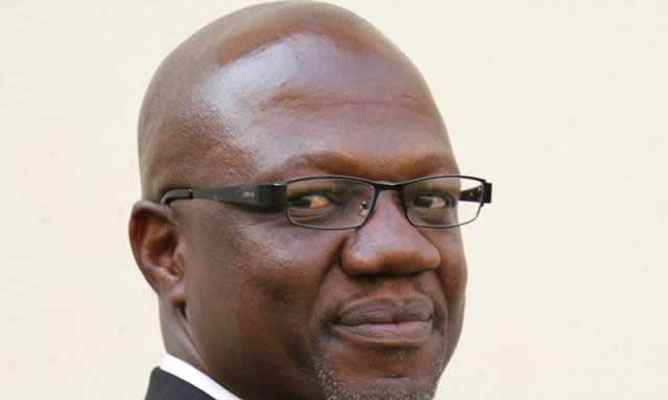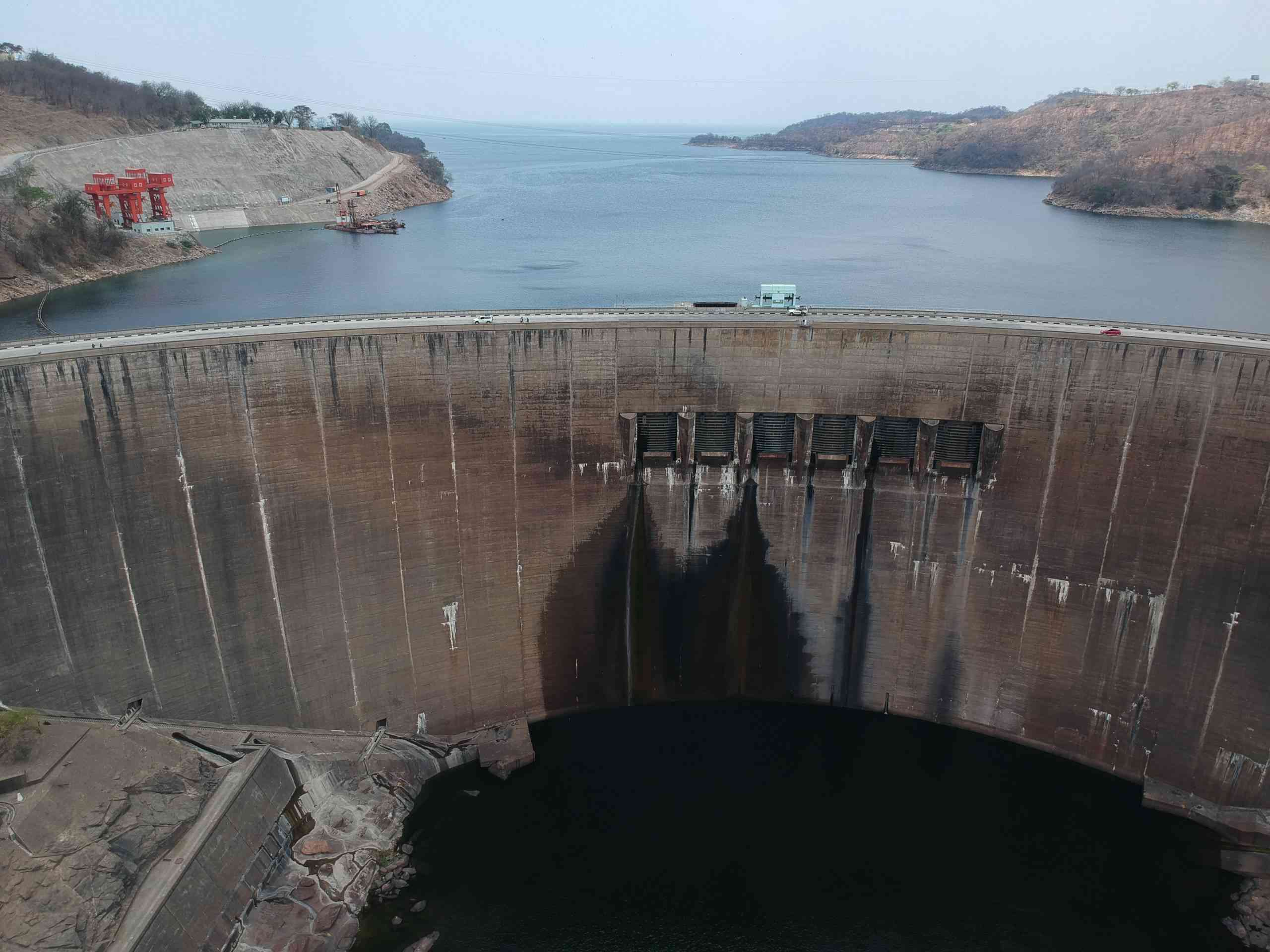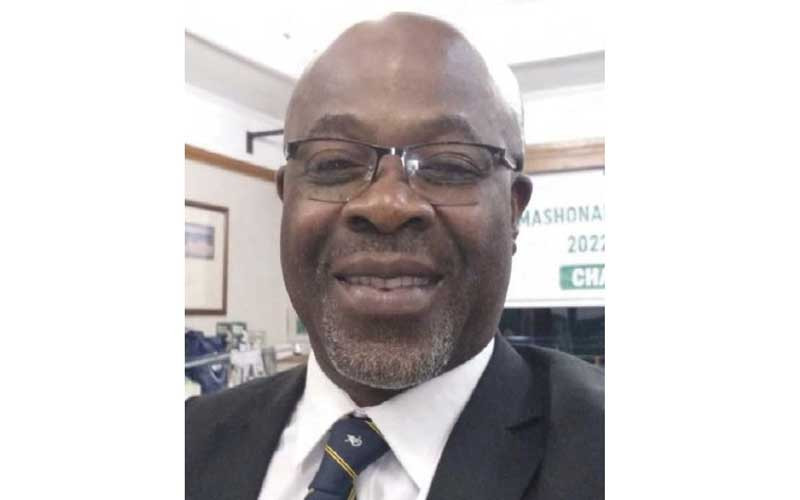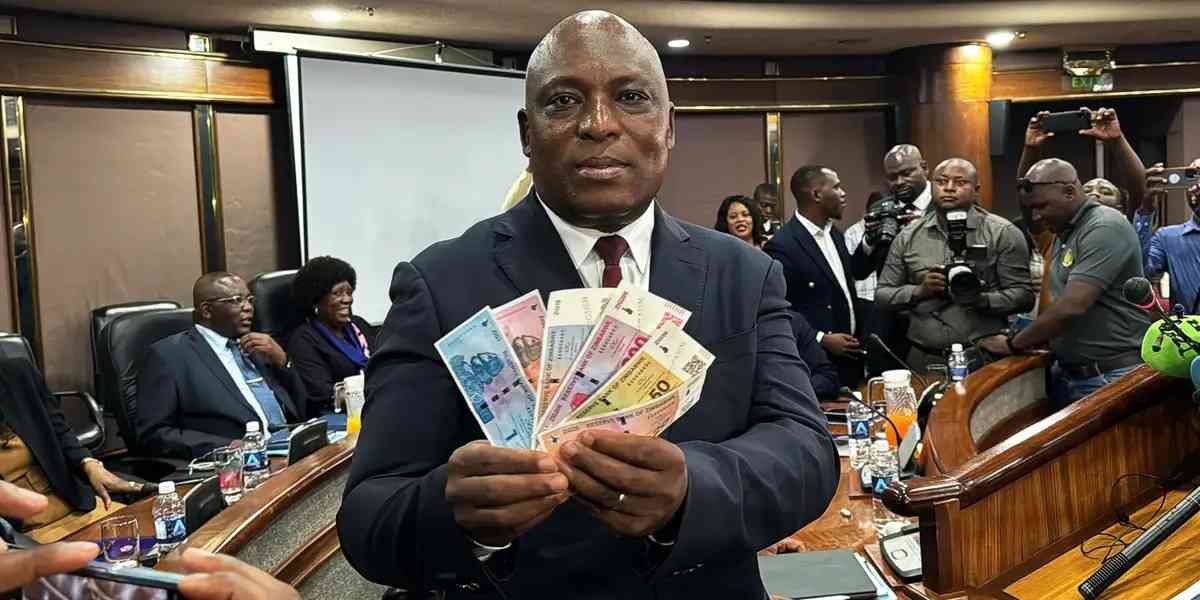
INTERVIEW: Mthandazo Nyoni
FORMER Public Service, Labour and Social Welfare deputy minister Tongai Muzenda (TM) was recently appointed general manager of the Minerals Marketing Corporation of Zimbabwe (MMCZ), a government arm mandated to market the country’s minerals. NewsDay (ND) business reporter Mthandazo Nyoni interviewed Muzenda to get to know the plans he has for the corporation. Find below excerpts from the interview.
ND: Congratulations on your appointment as the general manager for the MMCZ. Kindly tell us, briefly, about yourself?
TM: Thank you. Briefly, I have been working in the mines and mineral business for a long time. From since I left school, I joined a company called Anglo American Corporation where I attended a graduate learnership for a period close to two years in the marketing side of things. Those days we were working on base metals, mainly for Bindura Metal Corporation and Zimbabwe Alloys Limited. Then I rose through the ranks up to the position of chief executive of the Zimbabwe Alloys Mines Limited. But most of the time I was in the marketing side and commercial aspects of business like your purchasing, packing and dispatch and so forth as well as human resources. Then I left ZimAlloys in 2008 and started doing my own things, mostly farming. In 2013 I ran for Gutu West constituency and became a Member of Parliament for five years and during that tenure, I was appointed Deputy Minister of Public Service, Labour and Social Welfare. Then after that, I decided to quit and went back to farming. Then when I saw the MMCZ advert, I said why not, let me give it a chance maybe I can contribute with the experience I have in the mining industry and in December last year we had the interviews and towards end of January I got the letter and then February 1, 2019 I started working at MMCZ. Academically, I have a BSc Honours Degree in Economics from the University of Zimbabwe, I did Masters in Business Leadership with UNISA. Those are the important ones. I am married with two children, a boy and a girl.
ND: What is MMCZ and its mandate?
TM: MMCZ was established by an Act of Parliament in 1983, Chapter 21:04. The mandate of MMCZ is really being the marketing and a selling agency for all minerals which are produced in this country, except gold and silver. Also we are supposed to investigate, to see what’s happening in the marketing conditions outside Zimbabwe and within Zimbabwe in general. It’s our responsibility. We also do own trading where we can actually purchase the minerals for our own account and sell. But we hardly do that. I don’t remember the corporation doing that for years. One of our responsibilities is to advise the Ministry (of Mines and Mining Development) on all matters to do with marketing so that it makes proper pronouncements, at least in the marketing aspect of the business.
ND: Who are your clients?
TM: Our clients mostly are the exports market mostly the people who use minerals depending on which mineral. For example, some of our clients are those who use ferrochrome to make stainless steel. Also locally, we have got mineral producers. We have regional buyers and international customers.
- Chamisa under fire over US$120K donation
- Mavhunga puts DeMbare into Chibuku quarterfinals
- Pension funds bet on Cabora Bassa oilfields
- Councils defy govt fire tender directive
Keep Reading
ND: As a new general manager, what plans do you have for the corporation—short, medium and long term?
TM: That is a difficult question, but I can give you a general response. In the short term, what I would like to see is a workforce which is well organised, a workforce which when people see it out there they will say “wow, I want to go and work at MMCZ”.I want to change the perceptions which people have about MMCZ, which include corruption and allowing materials to leave without checking on them. We want both the producers and the general public to trust MMCZ and see excellence in the corporation. I have already had a meeting with my employees. I think we share the same view. We have got a budget, the ministry has its own numbers, we have got our own numbers, but we want to attain those numbers in an efficient manner. We don’t produce anything, we just market. So we want to be a marketer of choice. We generate a lot of documents, plenty of them, especially invoices, among others, with some of them passing through my office depending on the hierarchy of the document. But what happens with these documents is that sometimes they delay. My take I want documents to turn around, worse case, 24 hours, so that producers can have their money earlier. I also like to see proper pricing of all minerals. This is medium and long term. We don’t want to see under-pricing; we want the best for our nation. I would also want to encourage producers to value-add. I was in China recently, the main reason I went there was to see granite being value-added and being turned into tiles. At the moment, we export most of our materials as blocks. That’s not good enough. We need to cut and polish. But I think we will get there. I want to see this corporation growing in terms of what we are doing for the nation. My contract is five years, so within those five years I must attain those goals. I want to develop the youngsters. I will need to impart all the experience which I have acquired from Anglo American, from ZimAlloys and Bindura to some of our youngsters. We are having a graduate learnership policy to develop the young ones, hopefully after the five years we get a new young general manager. But as you know I don’t choose, that’s the prerogative of the minister. All I can do is to train these guys.
ND: MMCZ has been accused of corruption, with the Parliamentary Portfolio Committee on Mines and Energy in 2017 wanting the Zimbabwe Anti-Corruption Commission, police and the Auditor-General’s office to investigate illicit financial outflows in diamond mining, particularly by the MMCZ. As a new broom, what measures have you put in place to eliminate corruption in the organisation?
TM: As you might be aware that when I was in Parliament I was also a member of this committee. So I was also asking these questions while I was on the other side. So I have a fair understanding of what Parliament requires from us as MMCZ. What I have noticed from the period I have been here is that there is lot of secrecy about the diamond world. But if I tell you, the contribution of diamonds to the minerals which we market as MMCZ is insignificant. It’s not even 10%, but I don’t know why there is all this hype about diamond. But I am trying to get to the bottom of it and try to find out what has been happening here and why they are accusing this organisation of all these things. So yes, the actual purpose of selling diamonds by MMCZ is actually very transparent. I am still learning the system right now and see where the loopholes can be. But as far as I have seen so far, the diamond side of doing business one has to be extremely smart to steal diamonds. Say if you get one million carats from Zimbabwe Consolidated Diamond Company to sell, there are one million carats and they cannot be 999 000. They are one million carats. That’s what we sell and it’s an open system.
Buyers are coming and they are all under CCTV and we do our values first, they do theirs also and then we agree on which price to work on. Therefore, on the diamond issue, I will get to the bottom of it before the end of this month. On other minerals, you specially mentioned diamond; other minerals are also a problem. It’s not just diamond. For example, we get fake documents by some people who try to export our minerals based on falsehoods. So I decided that when we put in invoices, you cannot use photocopy anywhere.
You can only use originals from MMCZ. One of the things which I am going to recommend to the board is that we physically station our officers at the border posts to make sure that the documents are in sync with what is actually going out because if you are sitting in the office in Harare using the phone, you don’t really know what is happening out there. I don’t think it’s a big cost to put a person at each border post, it can’t cost the country that much. But also when doing these things, human beings are human beings, hopefully we will be able to remunerate our people correctly so that they are not tempted by these unscrupulous people around. But as I look at my budget, we don’t have the kind of money which I want to pay people, but we will have to generate enough money to pay them so that they won’t be tempted. If you give people peanuts they will be monkeys. ND: The country has been facing many challenges in marketing chrome, which include shortage of foreign currency, restricted payment terms, among others. What do you think should be done to address some of these challenges?
TM: We need fairness in this business; we need to understand the market. The problems are still in chrome whereby the small-scale producers always accuse the smelters of giving them a raw deal on prices. So as MMCZ, we cannot go between the smelter and miner because it’s their material. So they decide where they want to sell. But at the moment, we have opened a window through which they export raw chrome. We need to protect the small miners. What we must not do as MMCZ is to make life difficult for our producers, but we must not allow them to export at wrong prices.
ND: What major challenges are you facing as a corporation?
TM: I think the biggest challenge which we have had is that of sanctions. Our corporation is on the Western countries’ sanctions list and this thing has impacted negatively on the corporation’s effectiveness in carrying out its mandate. The sanctions are really curtailing our innovativeness. I don’t even understand why MMCZ is on the sanctions list. It’s not good for the nation, we lose out there. We also have challenges, but these are more internal like I mentioned about documentation. We need to have synergies between us and other government arms, Zimra and the Reserve Bank. We need to just streamline the process so that people don’t have 10 stops to just export their materials. We want one stop or at least let our organisations involved in the export of minerals to talk the same language. I’m glad we have made some inroads and we should get there so that we export.
ND: MMCZ had plans last year to establish a price-regulating team to control chrome prices for the international and domestic markets. Has the team now been established? If not, when will it be established?
TM: I don’t know who said this, but especially on regulating international prices, you can’t do that. These are international prices, but for all chrome ore pricing, the committee is already there which comprises us, the small-scale producers, smelters, among others. I think this team was established mid-last year.
ND: How much did MMCZ realise from mineral sales during 2018? How many tonnes of minerals did you export?
TM: This one is bit tricky, but let me give you. In 2018, we generated revenue of $1,59 billion. But this tonnage I am going to give you does not include diamonds because these are world diamond carats. But again these numbers are not audited, they may vary. Then on the tonnage, I think the total tonnage exported was 1 890 000 tonnes. That is the total tonnages exported. Both of these things are actually quite nice compared to the previous year. On revenue it was 6% higher and on tonnages it was about 10% higher than in 2017.
ND: What is your end of year outlook as far as the sale of minerals is concerned?
TM: Last year, we had $1,59 billion and the target for this year is we should get at least $2,2 billion. But if it’s possible we want it to be higher. In my head I’ve got $2,6 billion, but we have a target of $2,2 billion which is a significant increase from last year. This number is coming from the projection on the market, the projection of our production. We think the total export for this year may go to at least 2,2 million tonnes from 1,890 million and with the prices which have come up on almost all products, except platinum — which is giving us headaches, we will be able to achieve these projections. We don’t need this trade war between China and USA, they may just resolve it so that it doesn’t affect commodity prices. Otherwise we will be in trouble. That’s why I was saying sometimes we are not price makers. If you take, for example, chrome, we are price takers, despite that we produce a lot of it. We don’t determine the pricing. We have to make do with what the customers want. But also we need to produce better quality materials so that we get a premium on our products.











